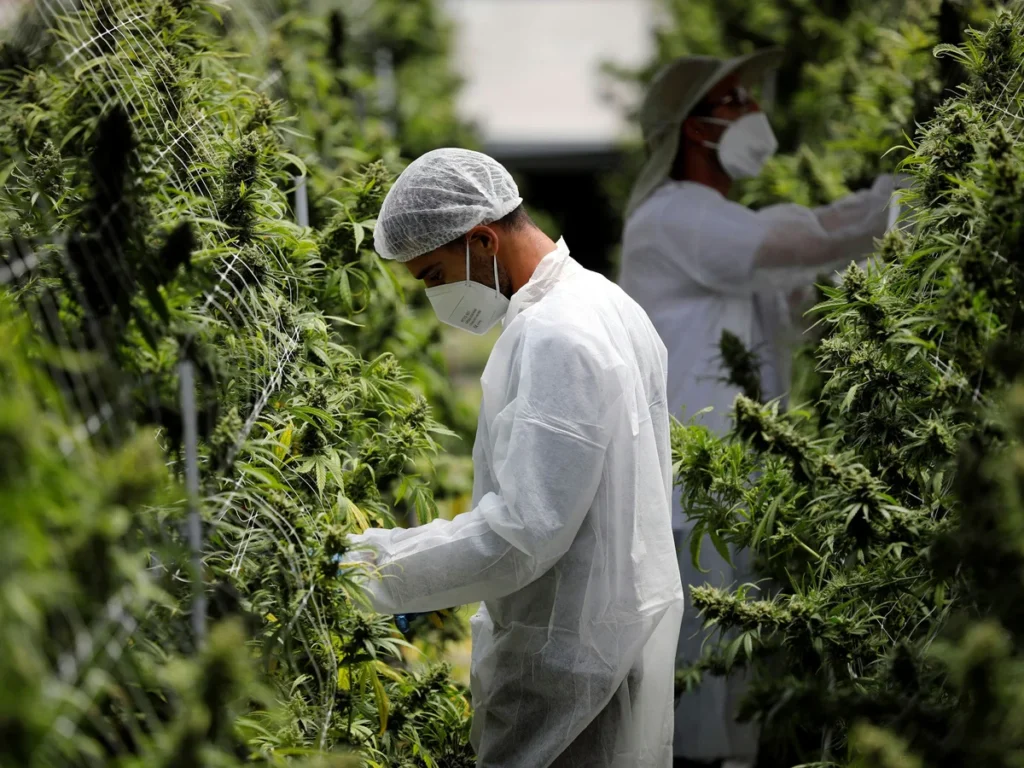Discovering Weed in Haninge: Cannabis Culture, Legal Challenges, and Growing Alternatives in Sweden’s Suburbs

However, like the rest of Sweden, Haninge is governed by the country’s strict zero-tolerance policy on cannabis. While cannabis use remains illegal, it continues to be prevalent among certain communities. In this article, we will explore the cannabis culture in Haninge, the legal implications of cannabis use, the risks associated with the underground market, and the growing trend of CBD as a legal alternative to cannabis in Sweden on Discovering Weed in Haninge.
Sweden’s Zero-Tolerance Cannabis Policy: A Strict Framework
Sweden’s stance on cannabis is clear: it is completely illegal. The country follows a zero-tolerance drug policy, meaning that any use, possession, or trafficking of cannabis is prohibited under Swedish law. This law applies to both recreational and medicinal cannabis use, although there are very limited exceptions for medicinal cannabis, which must be prescribed by a medical professional and regulated under strict guidelines on Discovering Weed in Haninge.
Cannabis is classified as a Class I narcotic under Swedish law, along with other drugs like heroin and cocaine. This classification means that cannabis is regarded as highly illegal, and those caught with it can face significant legal consequences. These penalties can include fines, prison sentences, and a criminal record that could have long-lasting consequences, affecting one’s ability to find employment, travel, or access other social services on Discovering Weed in Haninge.
The legal framework surrounding cannabis in Sweden is centered on prevention, with law enforcement working to curb both trafficking and personal use on Discovering Weed in Haninge.
Cannabis in the Underground Market of Haninge
Despite the harsh legal restrictions on cannabis, it remains available in Haninge through the underground market. The underground cannabis trade in Haninge, like elsewhere in Sweden, is largely driven by demand from individuals seeking to use cannabis for recreational purposes or as a means of managing stress, anxiety, and pain on Discovering Weed in Haninge.
However, the underground cannabis market carries significant legal and health risks.
- Legal Risks: Engaging in the underground cannabis market in Haninge is illegal and comes with serious legal consequences.
Why Do People in Haninge Use Cannabis?
Despite the legal risks and health concerns, cannabis continues to have a strong presence in Haninge, particularly among younger individuals.
- Recreational Use: Many people in Haninge use cannabis for recreational purposes, as it can produce relaxing and euphoric effects. For some individuals, it serves as a form of entertainment, offering a temporary release from responsibilities or routine.
- The ability to relax and manage emotions can be especially appealing in a fast-paced world. Some users feel that cannabis helps them cope with the pressures of school, work, and personal life.
CBD: A Legal and Safer Alternative in Haninge
These products are safe, legal, and come in various forms, including
- CBD capsules: A discreet and easy-to-use option for those looking for consistent doses of CBD.
- CBD edibles: Gummies, chocolates, and other treats infused with CBD, offering a tasty way to incorporate CBD into daily life.
- CBD beverages: Drinks infused with CBD, designed to promote relaxation and stress relief.
Unlike cannabis, which remains illegal in Sweden for recreational use, CBD offers a legal alternative for those seeking therapeutic benefits. The growing availability of CBD products in Haninge reflects a broader shift in consumer interest toward natural and holistic remedies.
Changing Attitudes Toward Cannabis in Haninge
As with many other parts of Sweden, attitudes toward cannabis in Haninge are slowly changing. Some in Haninge, particularly within progressive and alternative communities, are calling for the decriminalization or legalization of cannabis.
At the same time, the rise of CBD products in Haninge is a clear indication of the shifting perspectives surrounding cannabis.
Conclusion
The underground cannabis market in Haninge continues to thrive, but it carries significant legal and health risks for those involved.
For those seeking a legal and safer alternative, CBD products provide a promising solution. These products offer many of the therapeutic benefits of cannabis without the legal ramifications or psychoactive effects, making them a popular choice in Haninge.
As attitudes toward cannabis continue to evolve, both in Sweden and globally, the future of cannabis use in Haninge may see changes in public perception and policy.

When it comes to marijuana products, ScentHub offers an extensive selection of some of the highest quality items I’ve come across. I’ve tried a variety of strains, edibles, and concentrates, and the quality has consistently been outstanding. The flowers are always fresh, fragrant, and potent. I’ve had the chance to try both Sativa and Indica strains, and the effects have been exactly as described. Contact them on email: Scenthub43@gmail.com and also there Telegram : t.me/Scenthub43
Wow they have an option for me. The variety in their selection means that no matter my experience level, I’ll find a product that fits my needs. highly recommended .
I can say without hesitation that ScentHub has earned my loyalty. From the quality of the products to the exceptional customer service.

I’ve had a number of experiences where edible products don’t quite deliver the promised effects or leave an unpleasant aftertaste, but that’s not the case with ScentHub. The gummies, chocolates, and drinks I’ve tried have all been potent, flavorful, and consistently effective. The packaging is also informative, making it easy to understand the dosage and what to expect from each edible, Thank you !!!
They also don’t pressure you into buying anything you’re not ready for, which is a huge relief. It feels more like a conversation with a trusted friend rather than a hard sell. highly recommended!!